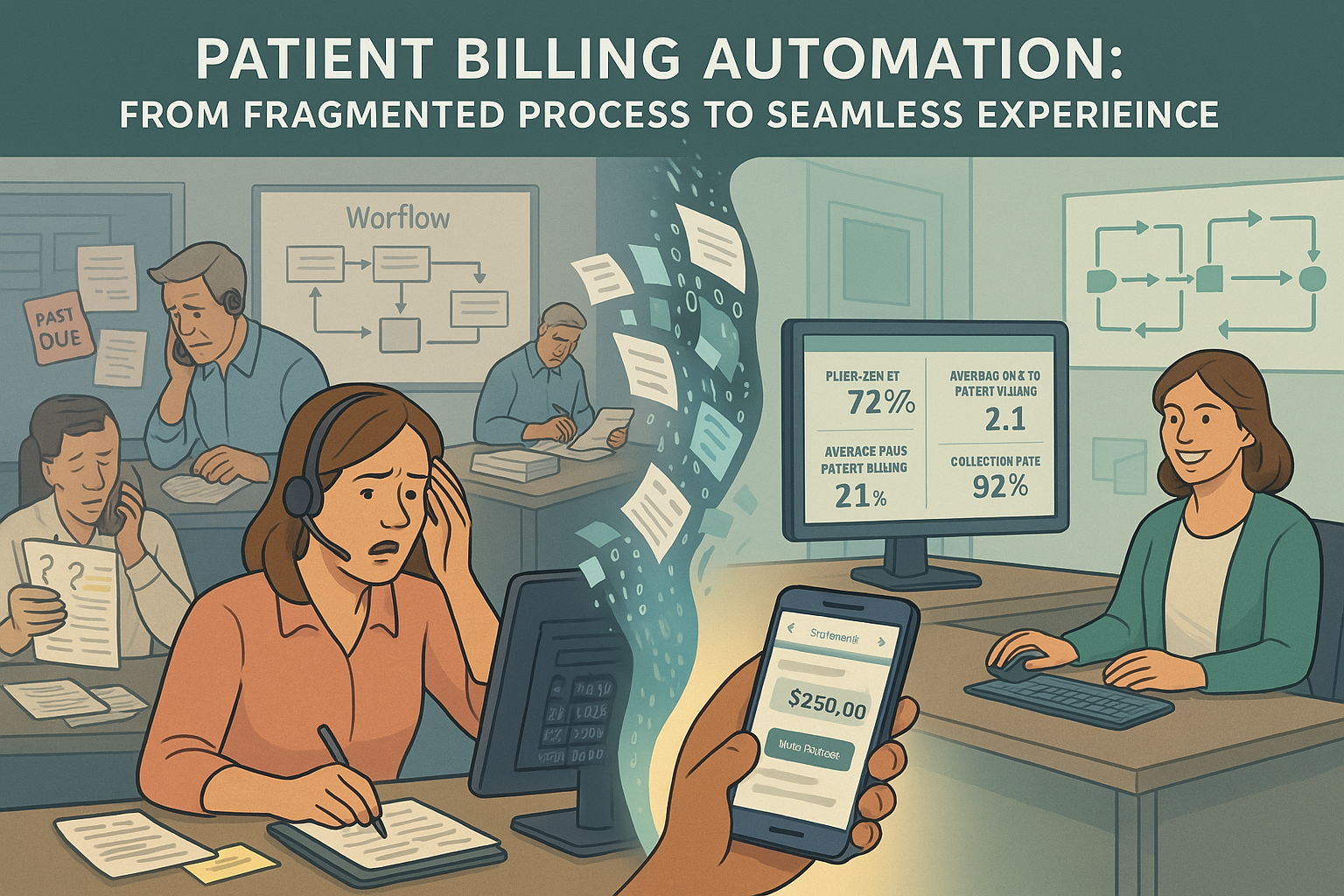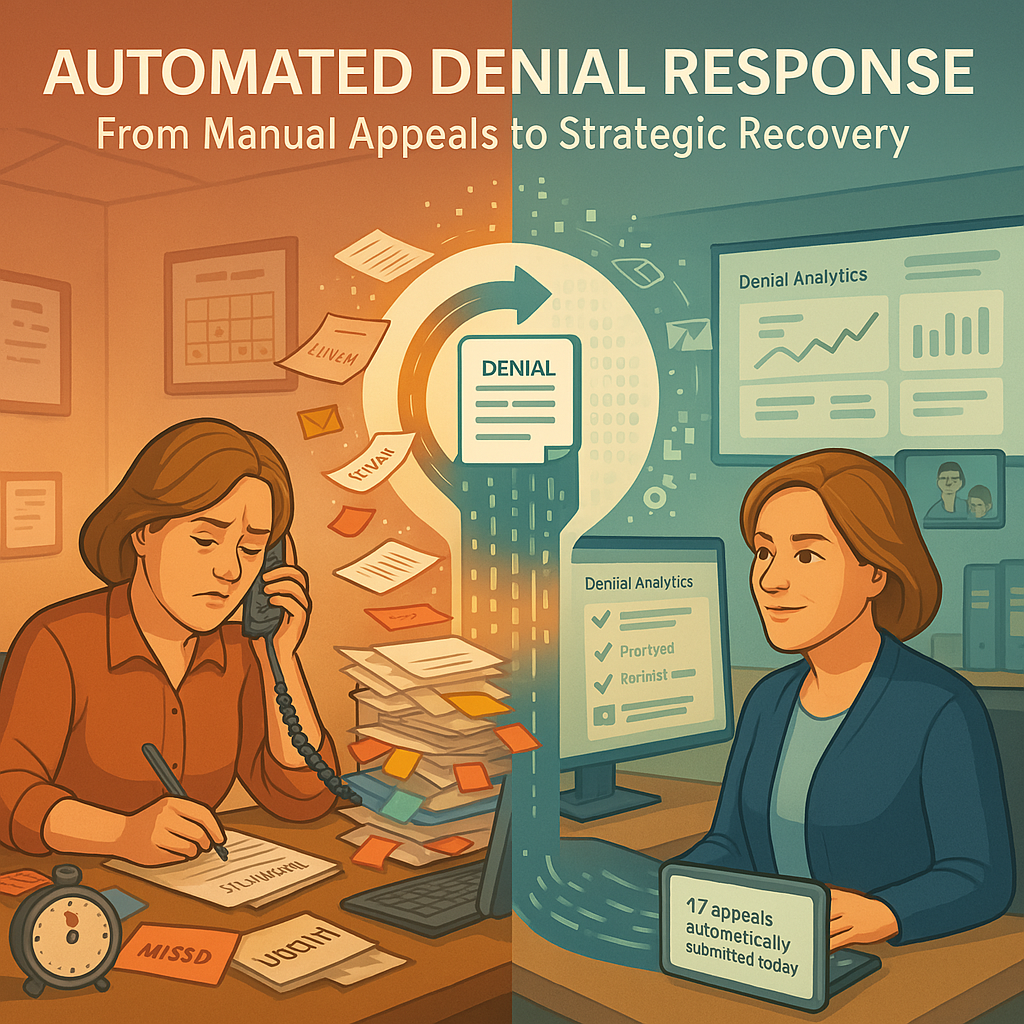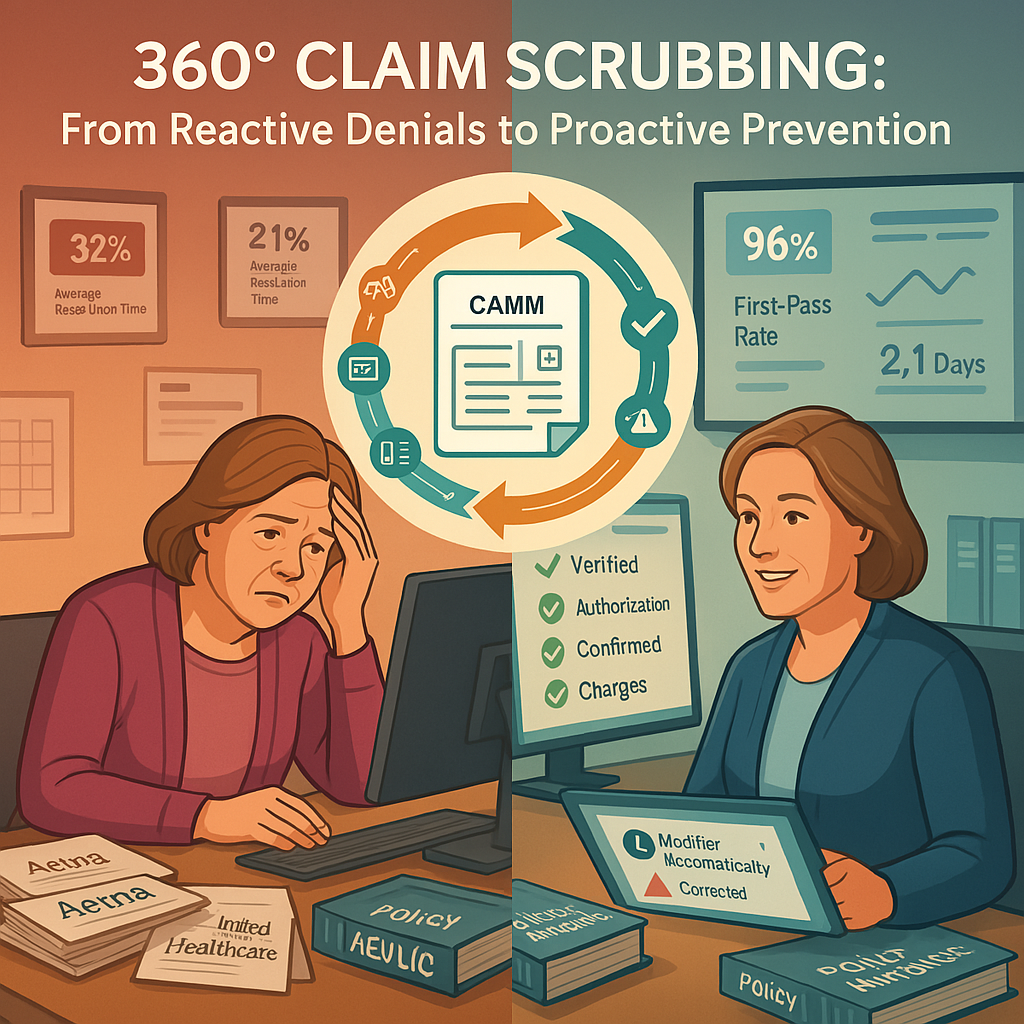Evolving Strategies in Revenue Cycle Management: A Year into RCM Directors
One year into their role, RCM directors often faces the challenge of not just maintaining but improving the financial health of their healthcare organization. Despite initial accomplishments, the journey toward an optimized revenue cycle is complex, entailing much more than simply managing daily tasks—it requires strategic thinking and a deep dive into systemic issues that persist behind the scenes.
Reflecting on the First Year as RCM Directors
Understanding the Landscape as RCM Directors
The first year as an RCM Director is crucial for understanding the intricacies of the healthcare financial ecosystem. This period involves grasping the nuances of patient registration, billing, coding, claims processing, and collections. Building a robust knowledge base about the organization’s specific challenges and strengths is fundamental.
Building Relationships
Success in RCM is deeply rooted in collaborative efforts. Establishing strong relationships with team members, stakeholders, and other departments is essential. Open communication channels and regular feedback loops help in aligning the team’s goals with the organization’s mission and vision.
Identifying Pain Points
A critical aspect of the initial phase is identifying bottlenecks and inefficiencies in the revenue cycle. Conducting thorough assessments and audits helps in pinpointing areas that require immediate attention. Common issues often include outdated technology, manual processes, and lack of training.
Communication is Key for RCM Directors
A common issue faced by RCM directors is the alignment between outsourced RCM vendors and in-house teams. Regular, effective communication is critical yet often overlooked. Historical data suggests that gaps in communication can lead to inefficiencies and unresolved errors in the revenue cycle process.
To tackle this, RCM directors should facilitate regular meetings—optimally, weekly—to discuss updates, challenges, and progress. This step ensures that both outsourced and in-house teams are on the same page, reducing the “garbage in, garbage out” issues that plague many systems. Additionally, leveraging modern communication tools can bridge the time zone and logistical gaps that often hinder real-time problem-solving.
Analyzing and Understanding of Data by RCM Directors
RCM directors should focus on translating raw data into actionable insights. Often, the nuances of accounts receivable (AR) complexities—such as distinguishing between insurance versus patient AR issues—require thorough analysis. Identifying the root causes of high AR days and denials is crucial for developing effective strategies.
By understanding the specifics—whether issues stem from insurance complexities or patient payment challenges—RCM directors can better strategize improvements. It’s not just about identifying what is wrong; it’s about understanding why it’s wrong and how to fix it.
Strategic Revisions and Continuous Improvement for RCM Directors
For RCM directors, the evolution of strategy doesn’t end after solving the initial set of problems. It involves continuous assessment and revision of processes. This might mean renegotiating terms with RCM vendors, reassessing the team structure, or integrating new technologies that enhance data transparency and workflow efficiency.
Embracing Technology
In the digital age, leveraging technology is paramount. Implementing advanced RCM software solutions can streamline processes, reduce errors, and enhance efficiency. Technologies such as artificial intelligence (AI) and machine learning (ML) can predict claim denials, automate coding, and optimize billing processes.
Enhancing Data Analytics
Data-driven decision-making is the cornerstone of modern RCM strategies. Investing in robust analytics tools enables the tracking of key performance indicators (KPIs), identifying trends, and making informed decisions. Real-time data analytics can provide actionable insights to improve financial performance.
Focusing on Patient Experience
The patient experience is increasingly becoming a focal point in RCM. Simplifying billing processes, offering transparent pricing, and providing excellent customer service can enhance patient satisfaction and improve collection rates. Implementing patient portals and mobile payment options can further streamline the process.
Training and Development
Investing in continuous training and development for the RCM team is essential. Keeping abreast of regulatory changes, coding updates, and best practices ensures that the team remains competent and confident in their roles. Regular workshops and certifications can enhance skills and knowledge.
Streamlining Processes
Efficiency is key in RCM. Streamlining processes through automation, eliminating redundant steps, and optimizing workflows can significantly reduce the cycle time. Lean methodologies and Six Sigma principles can be applied to achieve these improvements.
Practical Steps for Ongoing Improvement for RCM Directors
-
Implement Regular Strategy Sessions for RCM Directors:
Engage both internal teams and external vendors in regular discussions to ensure strategies are aligned and goals are met.
-
Use of Technology by RCM Directors:
Use advanced collaborative and analytical tools to streamline communication and enhance real-time data analysis.
-
RCM Directors Focus on Data-Driven Decisions:
Regularly review performance metrics to identify areas for improvement and adjust strategies accordingly.
-
Cultivate a Culture of Transparency and Accountability in RCM Directors:
Encourage open discussions about challenges and foster an environment where every team member feels responsible for the success of the revenue cycle.
Conclusion
The role of a revenue cycle director is dynamic and requires adaptability, strategic foresight, and a commitment to continuous improvement. By focusing on effective communication, detailed data analysis, and strategic adaptability, RCM directors can significantly impact the financial trajectory of their healthcare organizations. As they grow into their roles, the journey from reactive problem-solving to proactive strategic management becomes the cornerstone of successful revenue cycle management. Moving forward, setting clear goals, fostering innovation, remaining adaptable, and promoting collaboration will pave the way for continued success and growth in the ever-evolving landscape of healthcare revenue cycle management.










